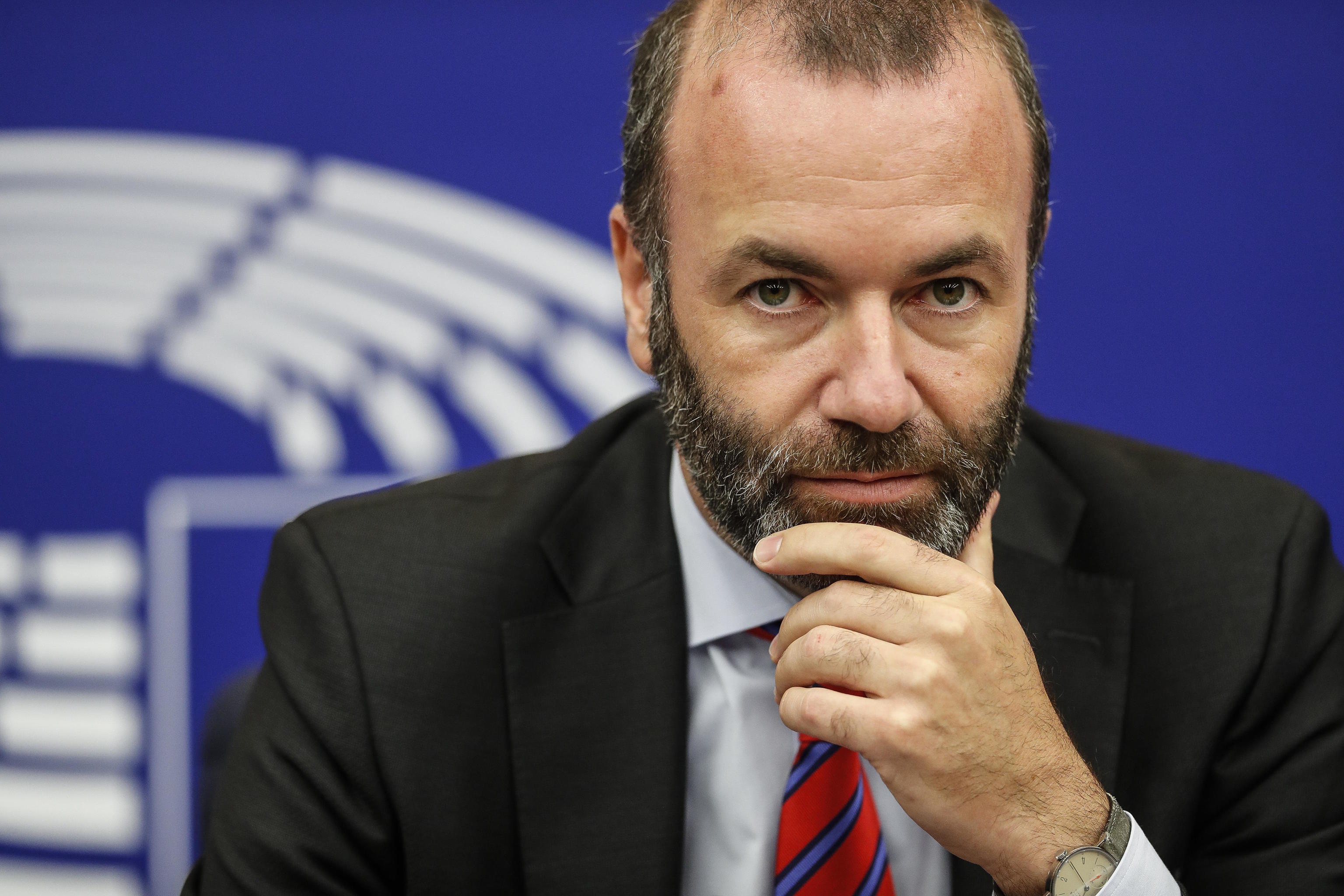Manfred Weber (Niederhatzkofen, Bavaria, 1972) continues to have one of his major concerns in the European automotive sector. The fact that the President of the European People's Party is German largely explains this concern. But it is also because it is a sector that contributes "7% of the EU's GDP" and where 90,000 jobs were lost last year; it is a field of innovation; and, of course, Chinese manufacturers are gaining a larger market share. That is why the leader of the main European party has emphasized that the Commission must provide facilities to manufacturers, it is necessary to review emission requirements, and the combustion engine should not be banned. As he explains in the interview he gave to EL MUNDO along with another European media outlet, he has achieved this.
"We must be realistic, pragmatic, and not ideological. The left continues to defend issues decided in the last term from an ideological perspective. We need pragmatism. That is why I was very pleased to hear yesterday [Wednesday], and this is another electoral promise fulfilled by the EPP, that we will be flexibilizing legislation for the combustion engine and electric cars by 2035," he points out.
"[Ursula] Von der Leyen clearly stated that she will present a revision of the legislation. So the combustion engine will return, and for consumers, this means that all engine options will continue to be allowed in Europe," he adds, referring to the State of the Union address, where the Commission President may not have been as definitive as the leader of the European People's Party claims. But Weber has no doubts that his party colleague will follow this path.
The German official also announced that she will promote the E-car: economic, European, and ecological. And her compatriot defends something very similar. "We lack affordable electric cars for the average European. They are too expensive. And that is precisely the competitive advantage of the Chinese: they are cheaper due to subsidies. That is why we want to support car manufacturers in this aspect, in these small and cheap cars. Regulating them properly is also a major focus. That is precisely pragmatism. We are producing for the mass market. It is really great, a great consideration now to create a regulatory framework that allows them to produce more cheaply in Europe," he explains, before addressing the Chinese issue.
"Europe must not be naive with China because subsidies exist. That is why I fully support the European Commission's initiative to impose tariffs on the automotive industry. They want to achieve global leadership, global domination in the sector," he continues.
This reality that Weber points out, that many Europeans cannot afford an electric car, has another interpretation beyond the price of vehicles: the loss of purchasing power of the middle class. Asked about this, the EPP leader states that "well-paid and high-quality jobs in Europe are necessary". "The unemployment rate is no longer a significant figure that can guide us because it is more about what kind of jobs you have. It is about the type of remuneration you receive for your work, and that is why competitiveness is fundamental," he explains. The recipe is well-known and challenging to implement, but nonetheless true.
This situation of impoverishment of the middle and working class is also fueling another phenomenon: the rise of extremism. And here Weber makes another additional connection: "The socialists are losing the workers, who are now voting for populists. The socialists are no longer the party of workers in Europe as they traditionally were." The criticisms of the political family to which the PSOE belongs are numerous.
AfD [Alternative for Germany] will be stronger than the socialists. That is the reality on the ground. My party is quite stable at around 30%, but they are losing the workers. That is why, if we want to fight against populism and those who have simplistic and nationalist answers, we have to win back the workers," he explains.
The German politician also addresses the agreement between the European Union and Mercosur, which is in its final approval stage after Brussels initiated the last step this week. France and Poland have opposed the pact, but Weber defends it and considers it an excellent tool to counter President of the United States Donald Trump's trade policy.
"We are in favor of Mercosur with the necessary safeguards for farmers. We will have zero tariffs for all car producers in exports to South America. It is a huge opportunity for European products to reach around 700 million consumers. I call it an anti-Trump agreement," he explains.
Although the interview mainly focuses on economic issues, the violation of Poland's airspace by more than 10 drones in the early hours of Wednesday is very present in Strasbourg. All political leaders have referred to this serious incident that brings war even closer to Europe and, in Weber's opinion, has a very clear message: "Putin is testing us."
"To all populists, like Vox in Spain, to all those who call for a more diplomatic approach towards [Vladimir] Putin, more red carpet like in Alaska, we must tell them that it is not possible. Trump did everything to please Putin, but the only point, the only message that Putin understands is to be strong, united, and defend our values together," he concludes with a statement that resonates with the assertion he made at the beginning of the meeting: "After everything that has happened this summer, we are facing an autumn of truth. We are alone in a rather cold world, in a very cold world. And we have to rise now and fight for our values and for our Europe."
